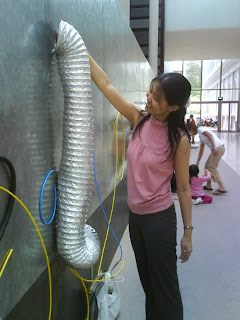 Author - Dale Carnegie; Publisher - Vermilion
Author - Dale Carnegie; Publisher - Vermilion- Let's not imitate others. Let's find ourselves and be ourselves. Remember, there is no one else on earth like you.
- Apply the four good working habits that will help prevent fatigue and worry: Clear your desk of all papers except those relating to the immediate problem; Do things in order of their importance; When you face a problem, solve it then and there if you have the facts necessary to make a decision. Don't keep putting off decisions; Learn to organise, deputise and supervise.
- Most of our fatigue derives from our mental and emotional attitudes - boredom, resentment, anxiety, worry, etc. Such emotional factors exhaust the person, makes him susceptible to colds and reduce his output. Therefore you must learn to relax while you are doing your work. Begin by relaxing your muscles. Think of yourself as an old crumpled sock. Otherwise you are producing nervous tensions and nervous fatigue!
- Our life is what our thoughts make it. You can direct yourself to think thoughts of courage and happiness, power and peace. By thinking the right thoughts, you can make any job less distasteful. Think of what getting interested in your job will do for you. Remind yourself that it may double the amount of happiness you get out of life, for you spend about one half of your waking hours at your work, and if you don't find happiness in your work, you may never find it anywhere. Keep reminding yourself that getting interested in your job will take your mind off your worries, and in the long run, even if it doesn't bring promotion and increased pay, it will reduce fatigue to a minimum and help you enjoy your hours of leisure.
- Would you take a million dollars for what you have? Count your blessings - not your troubles!
- If you are tempted to be worried about unjust criticism, remember that unjust criticism is often a disguised compliment. Remember that no one ever kicks a dead dog.
- Do the very best you can; and then put up your old umbrella and keep the rain of criticism from running down the back of your neck.
Part 2: Fundamental techniques in handling people
- God himself does not propose to judge man until the end of his days. Why should you and I? Therefore, don't criticise, condemn, or complain.
- The big secret of dealing with people - give honest and sincere appreciation.
- Arouse in the other person an eager want. He who can do this has the whole world with him.
- Do this and you will be welcome anywhere: Be genuinely interested in other people!
- How to make people like you instantly: Make the other person feel important - and do it sincerely.
Part 3: How to win people to your way of thinking
- A sure way of making enemies and how to avoid it - Show respect for the other person's opinions. Never say, " You're wrong."
- Gentleness and friendliness are always better than fury and force. Begin in a friendly way.
- In talking with other people, don't begin by discussing the things on which you differ. Begin by emphasizing - and keep on emphasizing - the things on which you agree. Get the other person saying "Yes, yes" at the outset. Keep your opponent, of possible, from saying "No." This will set the psychological process of the listeners moving in the affirmative direction.
- How to get cooperation: Let the other person feel that the idea is his or hers.- Appeal to the nobler motives. Individuals who are inclined to chisel will in most cases react favourably if you make them feel that you consider them honest, upright and fair.
Part 4: Ways to change people without giving offense or arousing resentment
- How to criticise - and not be hated for it: Call attention to people's mistakes indirectly.
- Talk about your own mistakes before criticising the other person.
- Ask questions instead of giving direct orders.
- Let the other person save face.


1 comment:
:D Has this book made a difference in your life yet?
Post a Comment